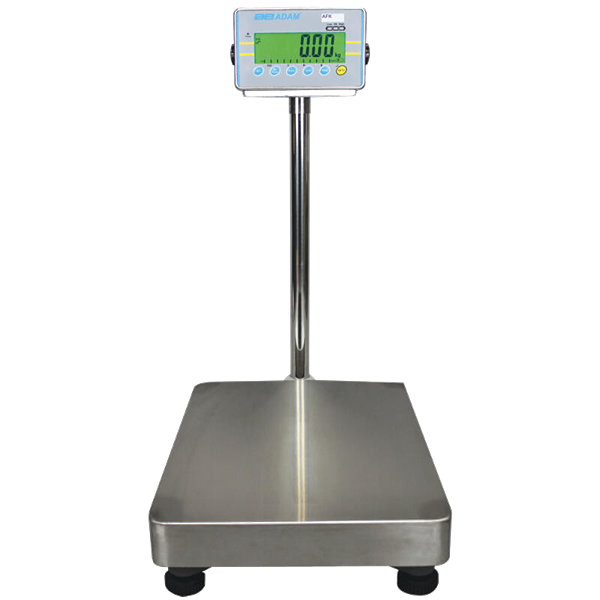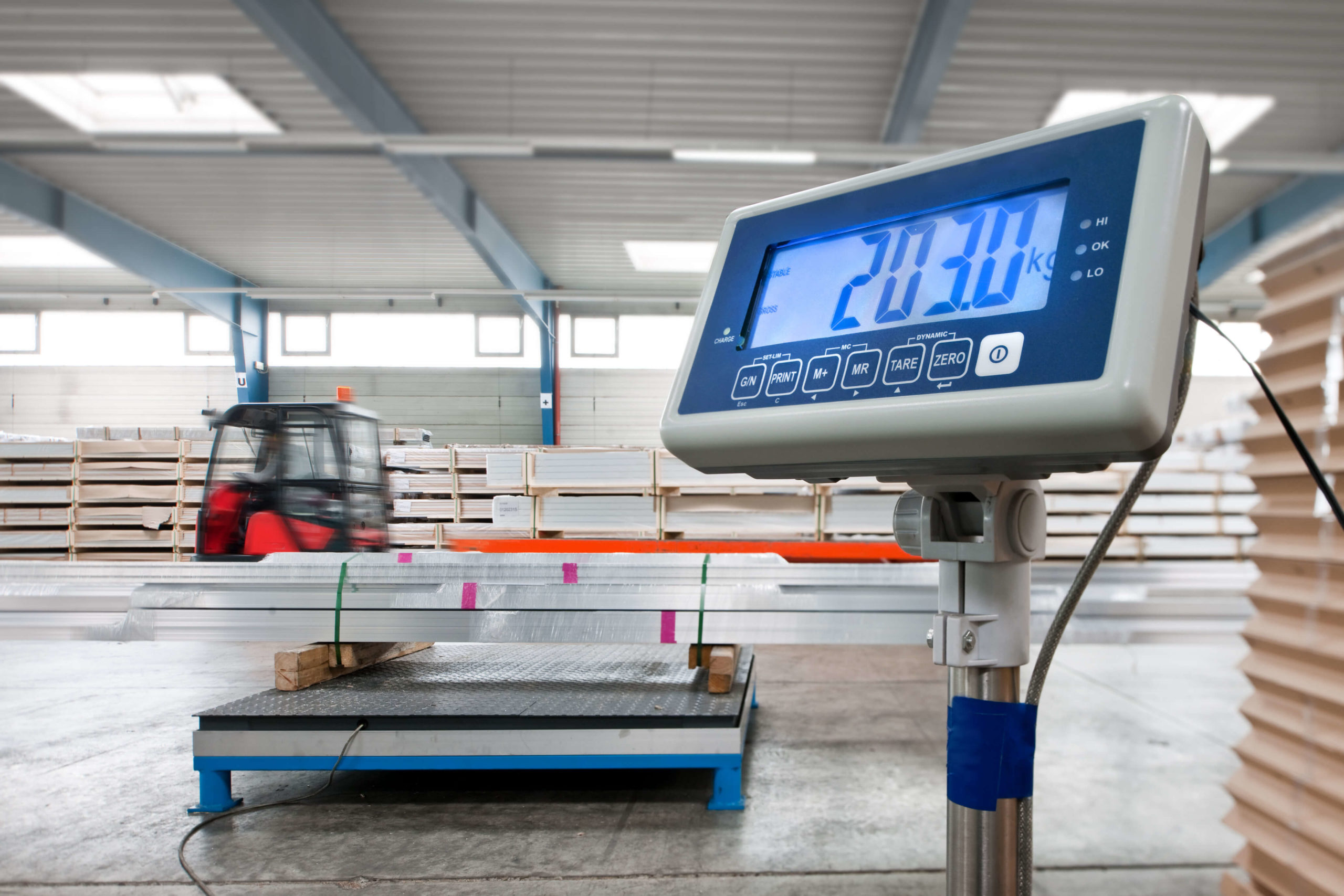A Beginner’s Guide to Understanding the Functionality of Industrial Scales
A Beginner’s Guide to Understanding the Functionality of Industrial Scales
Blog Article
How Industrial Scales Work: An Extensive Summary for New Users
Recognizing the mechanics behind industrial scales is vital for brand-new individuals who wish to guarantee accuracy in their measurements. These gadgets depend on tons cells and stress gauge technology to convert weight right into a quantifiable style, however the nuances of their procedure prolong past simple performance. From the different types available to the crucial strategies for correct usage and upkeep, each element plays a considerable function in attaining reliable results. As we explore these parts, one should take into consideration just how these aspects connect to improve performance in varied commercial applications.
Essentials of Industrial Scales
Industrial scales are necessary tools used throughout different sectors, consisting of manufacturing, logistics, and agriculture, to ensure precise weight measurements of heavy lots. The fundamental concept behind industrial ranges involves the conversion of weight right into a quantifiable type that can be presented digitally or analogically. These scales use various systems, such as tons cells or mechanical levers, to figure out the weight of objects positioned upon them.

In enhancement to their dimension capacities, commercial ranges are developed to stand up to extreme atmospheres, featuring robust building that resists dirt, wetness, and heavy influences. Calibration and upkeep are crucial to guarantee precision, as also small inconsistencies can bring about substantial economic ramifications. By recognizing the essentials of industrial ranges, customers can appreciate their importance in numerous industrial applications.
Sorts Of Industrial Scales
Numerous types of commercial scales satisfy the diverse needs of various industries, each designed to manage particular considering tasks with precision and reliability. Among one of the most typical kinds are floor ranges, which are suitable for weighing hefty and large items. These ranges usually include big systems and can accommodate palletized items, making them important in stockrooms and shipping centers.
Another kind is bench ranges, which are frequently utilized for smaller sized items in manufacturing and retail settings. They supply exact measurements for items that require accuracy, such as chemicals or components in production line (Industrial Scales). For mobile procedures, portable ranges supply flexibility and ease of transport, appropriate for fieldwork or short-lived installations
In applications requiring high-capacity dimensions, such as in mass material handling, crane scales and load cells are utilized. These scales can determine lots put on hold from a crane or various other training device, making sure safety and security and precision throughout operations. In addition, specialized ranges like checkweighers are used in assembly line to maintain quality assurance by making sure that items satisfy weight specs. Each kind of commercial scale plays a crucial duty in boosting functional effectiveness and accuracy across different fields.
How Considering Devices Job
Evaluating systems are important components that allow accurate measurement of mass across various industrial scales. These devices make use of different concepts of physics and design to provide precise weight readings, important for inventory management, quality assurance, and conformity with regulatory criteria.
One usual kind of considering mechanism is the load cell, which runs on the principle of pressure assesses. When a load is used, the lots cell flaws slightly, creating an electrical signal symmetrical to the weight. This signal is then transformed into a legible weight measurement by the scale's electronic devices.
One more widely made use of mechanism is the mechanical equilibrium, which uses a system of weights and bars. Industrial Scales. This method relies upon the principle of balance, where the weight of the things being measured is stabilized versus recognized weights, enabling for straight measurement
Furthermore, pneumatically-driven and hydraulic scales utilize fluid dynamics concepts to gauge weight. These systems use the stress put in by a lots to figure out weight, providing high precision for massive loads.
Appropriate Use Techniques
When using commercial site here ranges, sticking to appropriate use techniques is vital for keeping and ensuring accurate measurements devices stability. It is necessary to pick the ideal range for your specific application, as scales differ in ability and accuracy.
Prior to considering, make certain that the range is positioned on a secure, degree surface area devoid of vibrations or disruptions. This will certainly help to reduce mistakes triggered by exterior aspects. Furthermore, calibrate the scale according to the producer's specifications prior to make use of, making certain that it is operating appropriately.
When putting products on the scale, distribute the weight equally to stay clear of tipping or damaging the equipment. Always permit the range to support before videotaping the weight, as variations might occur during first placement. For bulk materials, make use of containers that are proper for the scale size to stop overloading.
In addition, prevent placing cold or extremely warm items straight on the scale, as temperature variants can impact precision. Last but not least, keep the weighing system clean and free of particles to stop contamination and guarantee reliable outcomes. By adhering to these methods, customers can make best use of the performance and long life of their industrial ranges.
Upkeep and Calibration Tips
Making sure the longevity and precision of industrial scales calls for diligent upkeep you can try here and normal calibration. A precautionary upkeep schedule is important; it should consist of routine examinations to identify deterioration, specifically on load cells and other delicate components. Consistently cleaning the scale's surface area and ensuring the surrounding location is free from particles will aid keep its honesty and performance.
Calibration is similarly crucial and should be carried out at normal periods or whenever the range experiences significant modifications in temperature level, moisture, or physical variation. Utilize certified calibration weights that are traceable to national requirements for accuracy. Paper each calibration session thoroughly to track efficiency with time and recognize any kind of trends or persisting problems.
Train all operators on correct range use and upkeep methods to make sure consistent efficiency and precision. By adhering to these maintenance and calibration tips, customers can improve the reliability of their commercial scales, guaranteeing optimal operation in site web any kind of setting.
Conclusion

Understanding the mechanics behind industrial scales is crucial for new users who desire to ensure accuracy in their dimensions.Industrial ranges are crucial devices used across different markets, consisting of production, logistics, and farming, to ensure precise weight dimensions of heavy loads. The essential concept behind commercial scales involves the conversion of weight into a quantifiable type that can be shown digitally or analogically. By comprehending the basics of industrial scales, users can value their significance in numerous commercial applications.
In verdict, comprehending the operation and upkeep of commercial scales is vital for making sure accurate weight dimensions in different applications. (Industrial Scales)
Report this page